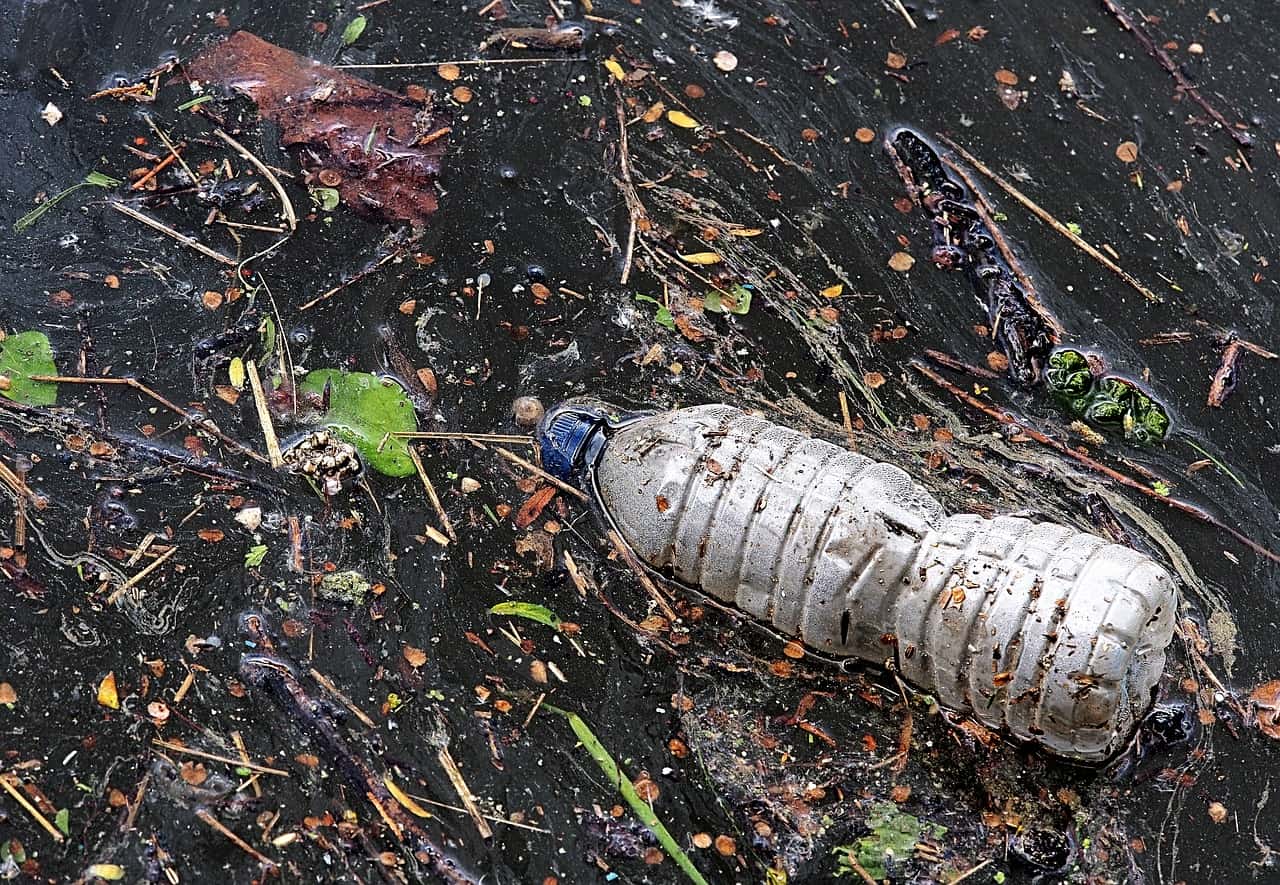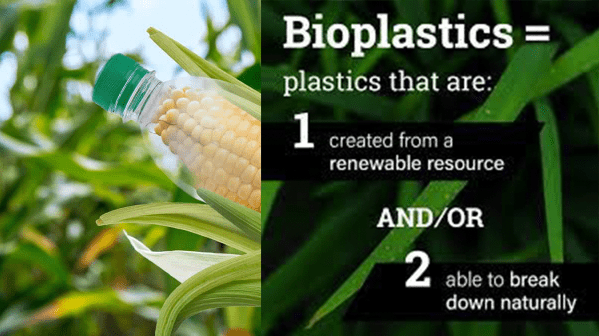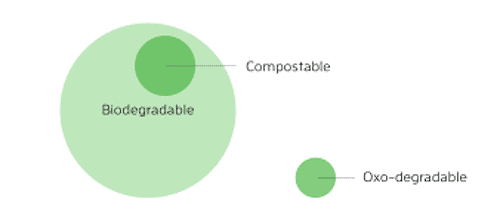Asada
Even before ASDA’s planned merger with Sainsbury’s was announced, the UK food retailer had made bold commitments on plastic pollution.
Earlier this year, it set out plans to immediately reduce plastic use by 10 percent in 2018, which will require the replacement of 2.4 million drinking straws. All of its stores will also remove single-use cups and cutlery by 2019.
In the long-term, it set out ambitions to make all its branded packaging recyclable by the mid-2020s. As the company currently serves 18 million people a week, the potential for changing consumer behavior is high.
ASDA is also owned by US giant Walmart and the merger with Sainsbury’s will create the largest supermarket chain in the UK. It’s uncertain if the latter will take on ASDA’s plastic plans, but it could come under pressure to step up to the plate.
Costa Coffee
Costa Coffee is, in fact, one of the world’s largest coffee companies.
Operating over 3,000 stores around the world, it gets through a lot of disposable cups, but the company has decided to take its sustainable responsibilities seriously.
New commitments have been made including discounts on reusable cups and the planned removal of all plastic straws from cafes.
However, it is the decision to pay waste collectors £70 for every tonne of used cups which is a real game-changer.
By 2020, the company is targeting an astonishing half a billion recycled cups, the equivalent of its current annual sales in the UK.
The factories involved are bracing themselves for a seven-fold increase in work.
Tottenham Hotspur
this Sport has a unique ability to reach millions of people around the world. And football as one of the few truly global sports is able to engage people from all backgrounds on social and environmental issues.
That’s why Tottenham Hotspur’s move to eliminate plastics from its new stadium could elevate the plastic-free campaign to a new level.
The North London football club is currently constructing an estimated £850 million ground to support its growing fan base and recent success.
Once the new 62,000 seated venue opens at the end of 2018, it will ban all single-use plastics across the whole club, including VIP areas. Fans will be sold disposable cutlery, straws and stirrers from day one.
What’s more, the club will replace plastic bags with biodegradable ones and all contracts with suppliers will contain a requirement to reduce plastic usage. New members will receive a Bag for Life when the next season starts.
Norwegian Cruise Line Holdings
Last year, Norwegian Cruise Line Holdings announced they were saying bon voyage to single-use plastic straws across its fleet of 26 ships. And that’s not all—two of their island destinations—Great Stirrup Cay and Harvest Caye (in the Bahamas and Belize) are banning single-use plastic straws too. The impact? The elimination of more than 50 million straws across its fleet every year.
Evian
It’s estimated that one million plastic bottles are sold around the world each minute. But, by 2021? Humans will have used half a trillion plastic bottles per year. Evian wants to rectify how they’ve contributed to the issue, reports Fast Company. By 2025, they plan on producing all their plastic bottles from 100 percent recycled plastic. To put in perspective—most bottled water companies average around 6 percent to 7 percent recycled plastic in their products.
McDonald’s
In the summer of 2018, MarketWatch reported that McDonald’s plans to stock their 36,000 restaurants in 122 locations around the globe with packaging—including straws—that are from renewable, recycled, or certified sustainable sources. By 2025, all their locations will be compliant; currently, only half of McDonald’s customer packaging comes from renewable, recycled or certified sources and nearly two-thirds of fiber-based packaging comes from certified or recycled sources. If you’re still not sure what’s recyclable, here’s a list of 15 things that should never go into your recycling bin.
American Airlines
Not only is American Airlines banning plastic straws and stirrers on their flights, but they’re also planning to phase out single-use plastic in their lounges around the world. This means the end of straws being served with drinks while plastic water bottles and flatware will no longer be offered and reusable bags will pack up to-go orders. American Airlines expects this new initiative to eliminate 71,000 pounds of plastic waste annually.
Guinness
Soon you’ll be able to sip your Guinness with green pride that goes beyond Irish solidarity: Diageo, the British beverage giant that bottles the classic beer, recently announced they’ll be eliminating all plastic from their beer packaging and replacing it with 100 percent biodegradable—or recyclable—cardboard. They’re investing $21 million to get rid of plastic ring four-pack and six-pack holders, along with all shrink-wrapping, and they’ll be rolling out the changes to their other beer brands, Smithwick and Harp. If you want to cut down on plastic, take some tips from these nations.
Sodexo
Foodservice company Sodexo provides around 13,000 cafeteria-style meals and concessions to schools, workplaces, and venues each year. They began a new sustainability plan in 2019 that eliminates 245 million single-use items at their locations. Plastic bags and stirrers are no longer available—and they’re moving towards making plastic straws available by request only. By 2025, they plan to get rid of polystyrene foam items such as cups, lids, and food containers too. Just remember that not every takeout container is created the same—check out 11 things you think are recyclable but are not.
Red Lobster
By November 2019, Red Lobster’s 700 restaurants will offer plastic straws upon customer request. The hope is to offer an eco-friendlier alternative to straws by 2020. Red Lobster estimates this shift will eliminate more than 150 million plastic straws per year. This is part of the company’s effort to reduce the marine plastic pollution problem that is killing millions of marine animals each year.
United Airlines
United Airlines has banned plastic straws and cocktail picks on their flights—and beginning in November 2019, they’ll have a biodegradable bamboo alternative. United Airlines felt this was an important switch to make because of the fact that straws don’t biodegrade and are nearly impossible to recycle.
Carlsberg
You know those plastic rings that hold a six-pack of beer together? Danish brewer Carlsberg will be the first beer producer to ditch them. Instead, they’ll use recyclable glue to hold their cans together. Carlsberg is eliminating 1200 tons of plastic per year—and reducing the amount of plastic used in traditional multipacks by up to 76 percent.
The Walt Disney Company
Roughly 175 million straws and 13 million stirrers are used at all Disney theme parks and resorts each year. To eliminate that waste, the Walt Disney Company will ban single-use plastic straws and stirrers by the summer of 2019. Disney also plans to cut down on single-use plastic bags with reusable shopping bags that patrons can opt to buy instead. And, Disney has plans to reduce the amount of plastic in guest rooms by 80 percent.
Nestlé
In 2019, Nestlé, which is the world’s largest packaged food company, eliminated all plastic straws in its products. As part of this commitment to reducing waste, they’re also transitioning Nesquik drinks from plastic to paper containers while Nestlé Waters will increase the recycled PET content in its bottles to 50 percent in the United States. And, by 2025, Nestlé has pledged to make 100 percent of ALL its product’s packaging recyclable or reusable.
Starbucks
By 2020, Starbucks plans to eliminate all plastic straws from their 28,000 stores. Now, how will that affect customers with a hankering for iced coffee or tea? In lieu of straws, all cold beverages will use a recyclable, strawless plastic lid. And for frothier drinks like Frappuccinos, which are straw-dependent? Starbucks will offer straws (made via materials like paper and compostable plastic)—but only by request. They estimate their plans will eliminate more than one billion plastic straws each year.
Hyatt
Last year, Hyatt announced plans to eliminate single-use plastic straws and drink picks, making then only available by request at their properties. Hyatt is also offering “eco-friendly alternatives” for other products. Since 2008, Hyatt has collaborated with Clean the World, a non-profit that collects used soap and shampoo products from hotels, recycles them, and then donates them to communities in need.
Sea World Entertainment
SeaWorld Entertainment is on a mission to protect animals and habitats worldwide—and cemented their dedication to the cause in 2018. They eliminated single-use plastic straws and bags from all 12 of its theme parks. It’s estimated that eight million metric tons of plastics enter the ocean each year.
Method Cleaning Products
Since plastics make up almost 13 percent of the municipal solid waste generated, and the largest plastic waste contributors are containers and packaging—cleaning brand Method is all about reducing the carbon footprint of their products. A big step is making all their 1-PET plastic bottles, including handwash, dish soap, and spray cleaners, from 100 percent PCR (post-consumer resin, which has about a 70 percent lower carbon footprint than virgin plastic).
Clifbar
The power bar company is a trailblazer in its commitment to zero waste. On Earth Day 2001, they made the switch to recycled paper. Today, they no longer shrink-wrap boxes of their bars—and the boxes themselves are made from 100 percent recycled paperboard.
Kroger Supermarkets
Up to 1 trillion plastic bags are used worldwide each year and only about 5 percent of them are recycled. To make a dent, approximately 2800 Kroger-owned grocery stores across the country will do away with packing up their customer’s groceries in plastic bags. Seattle based Quality Food Centers (QFC) is the first Kroger owned store that’s already put this plan into effect with the other stores right behind.
Marriott International
At the start of 2019, Marriott started phasing out plastic straws from their London hotels—and announced they’ll completely eliminate plastic straws and stirrers from all their properties worldwide by the end of 2019. With more than 6,500 locations, Marriott estimates they use around 1 billion straws and 250 million stirrers per year.
Delta
Delta Airlines is on track to reduce its plastic waste by an estimated 300,000 pounds a year. They’ll remove a variety of single-use plastic items—including stir sticks, wrappers, utensils, and straws—from planes and lounges. By mid-2019, bamboo straws will available for cold drinks, and birch wood stirrers for hot drinks and Delta One’s Tumi kits will also no longer be wrapped in plastic.
Whole Foods
In 2007, after estimating they were distributing 150 million plastic bags a year, Whole Foods became one of the first grocery store chains to eliminate a plastic bag option, reports the New York Times. That’s when they started offering customers a choice between recycled paper or reusable bags. After a trial run in Toronto and Texas stores, the no plastic bag ban took effect at all Whole Food locations on Earth Day 2008.
IKEA
In 2008, IKEA was also a leader in the elimination of plastic bags. They rolled out a policy so customers could purchase an IKEA blue bag for $.59 or use their own. 92% of Ikea shoppers choose reusable bags over plastic ones—and the policy is still in effect today.




Pura Vida Bioplastics = Real Certificates USDA BIO-BASED, TUV, BNQ, GREEN AMERICA Home Compostable – Breaks down 3-4 months without Chemicals
Get a Quote